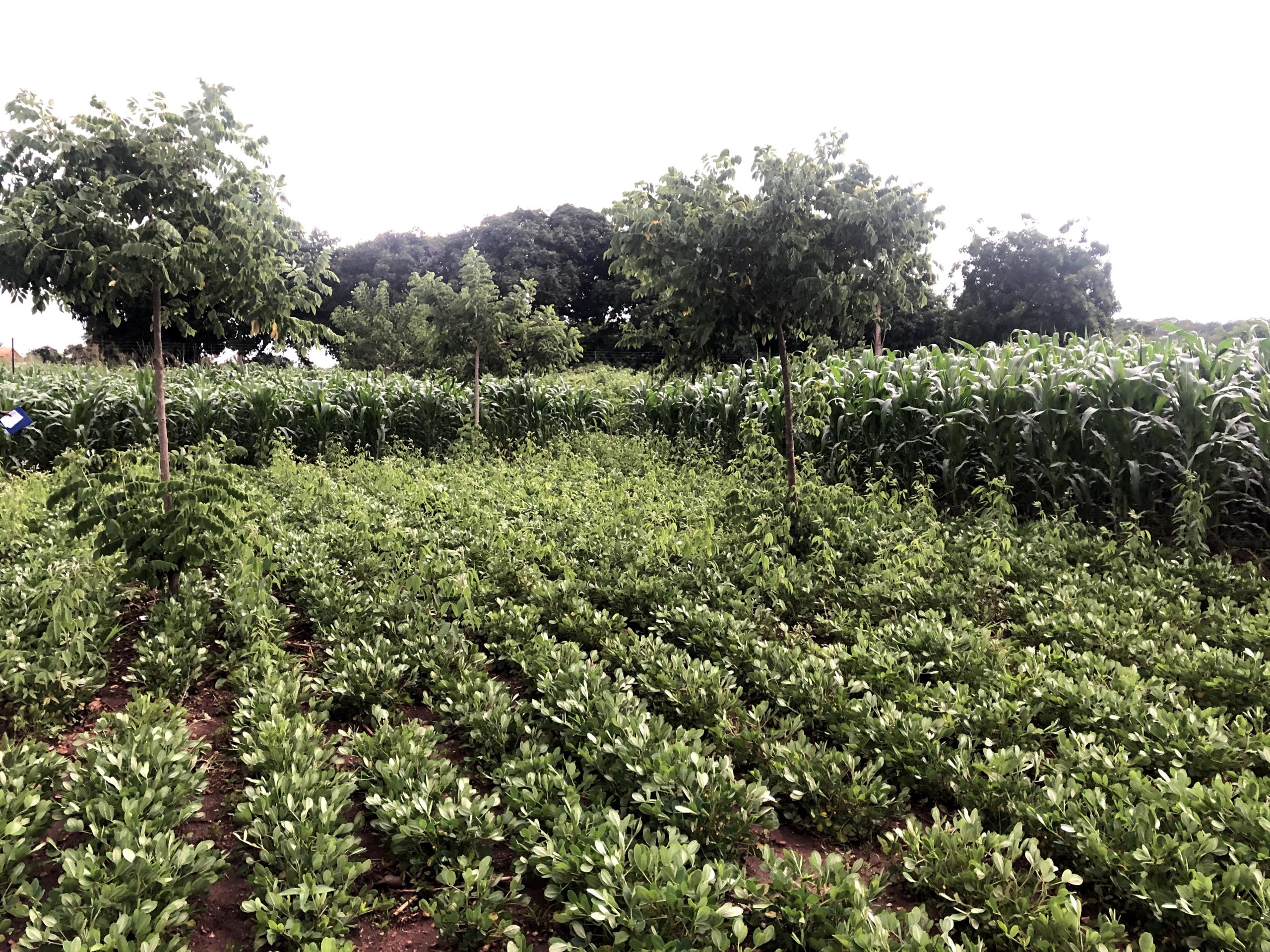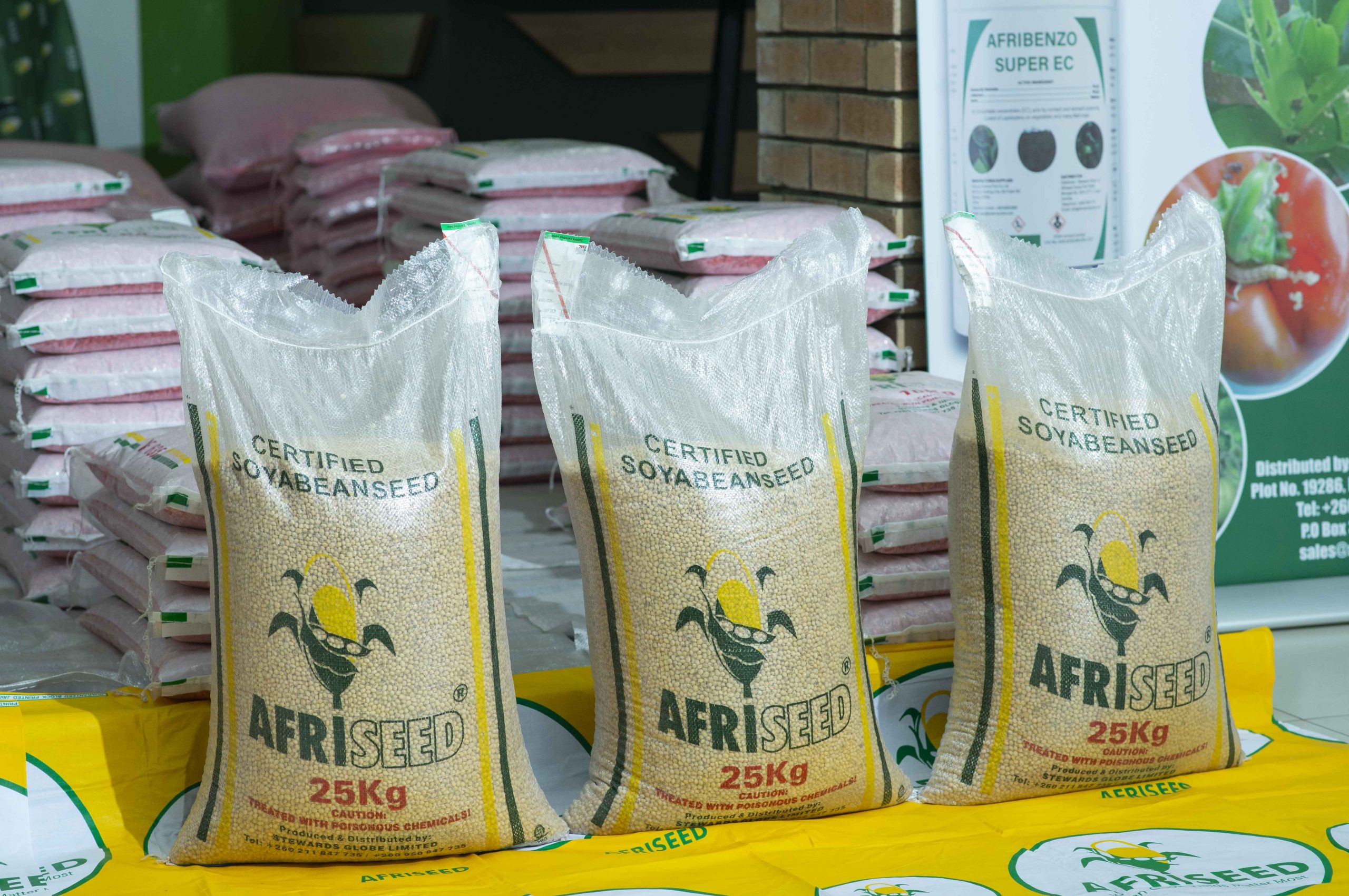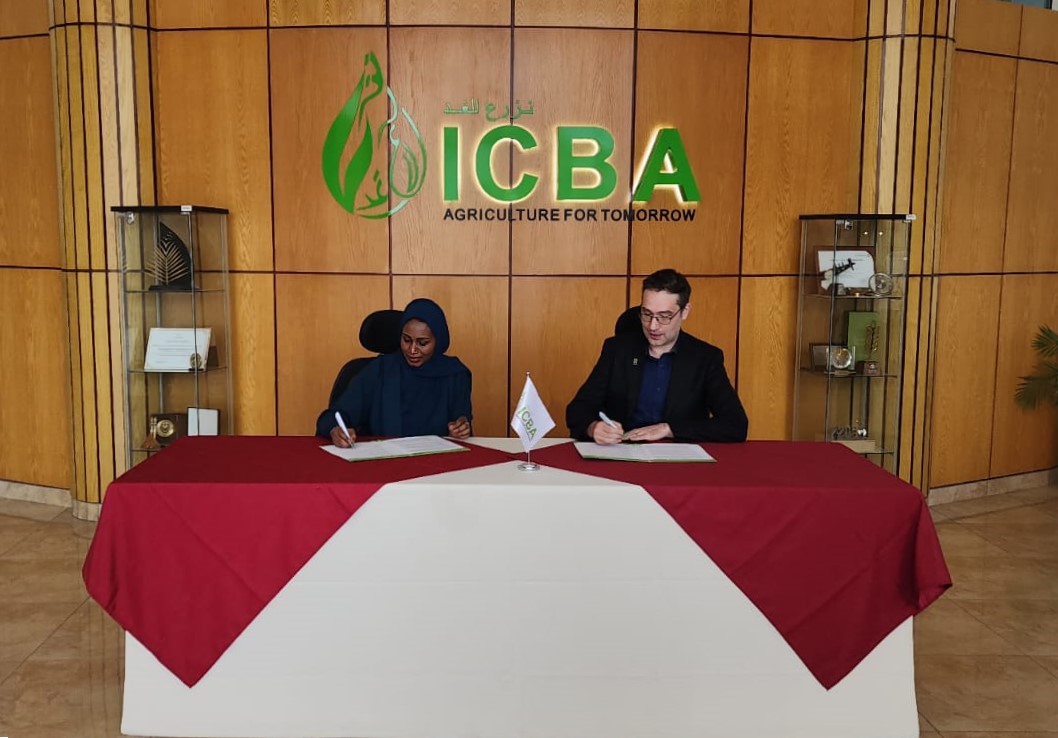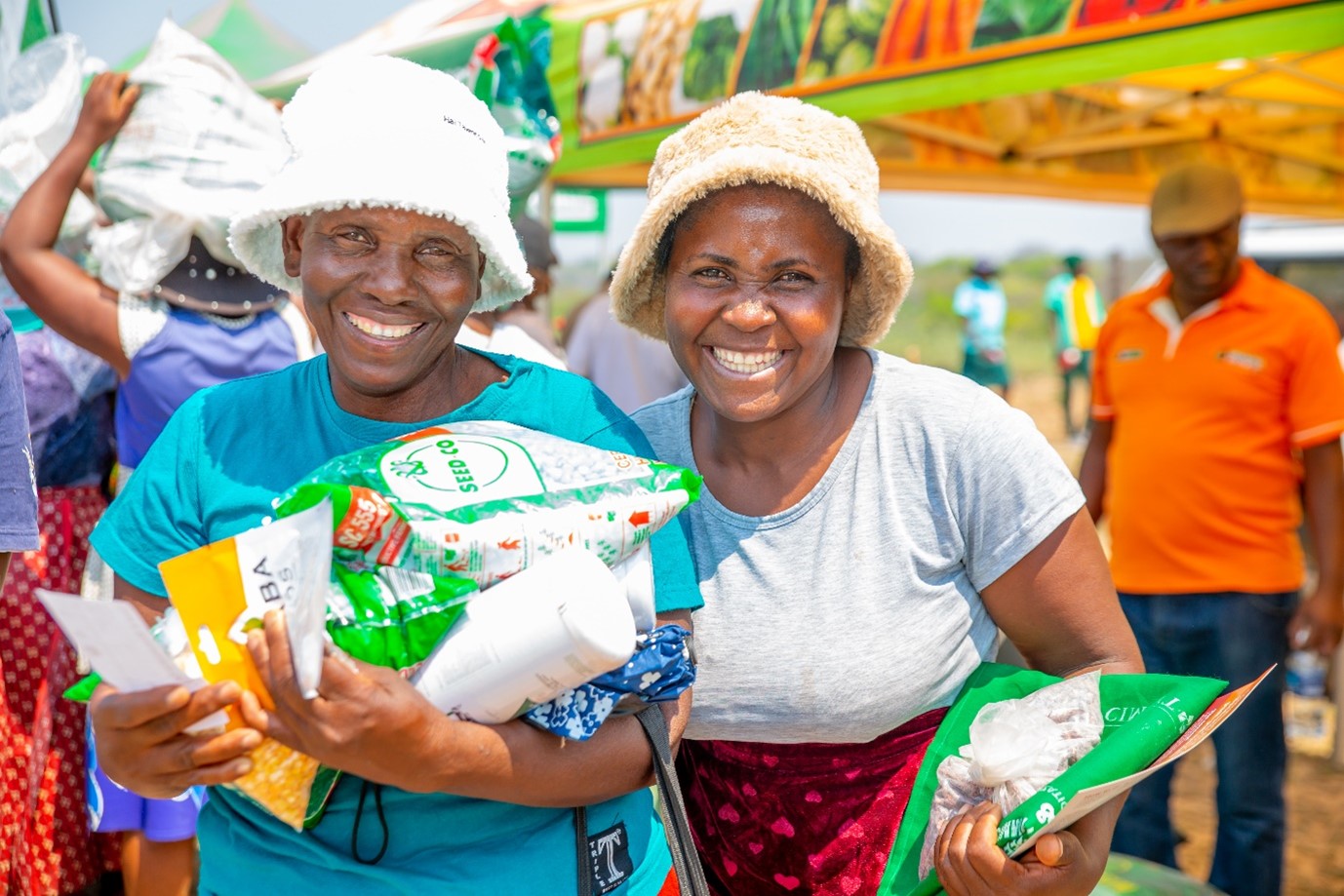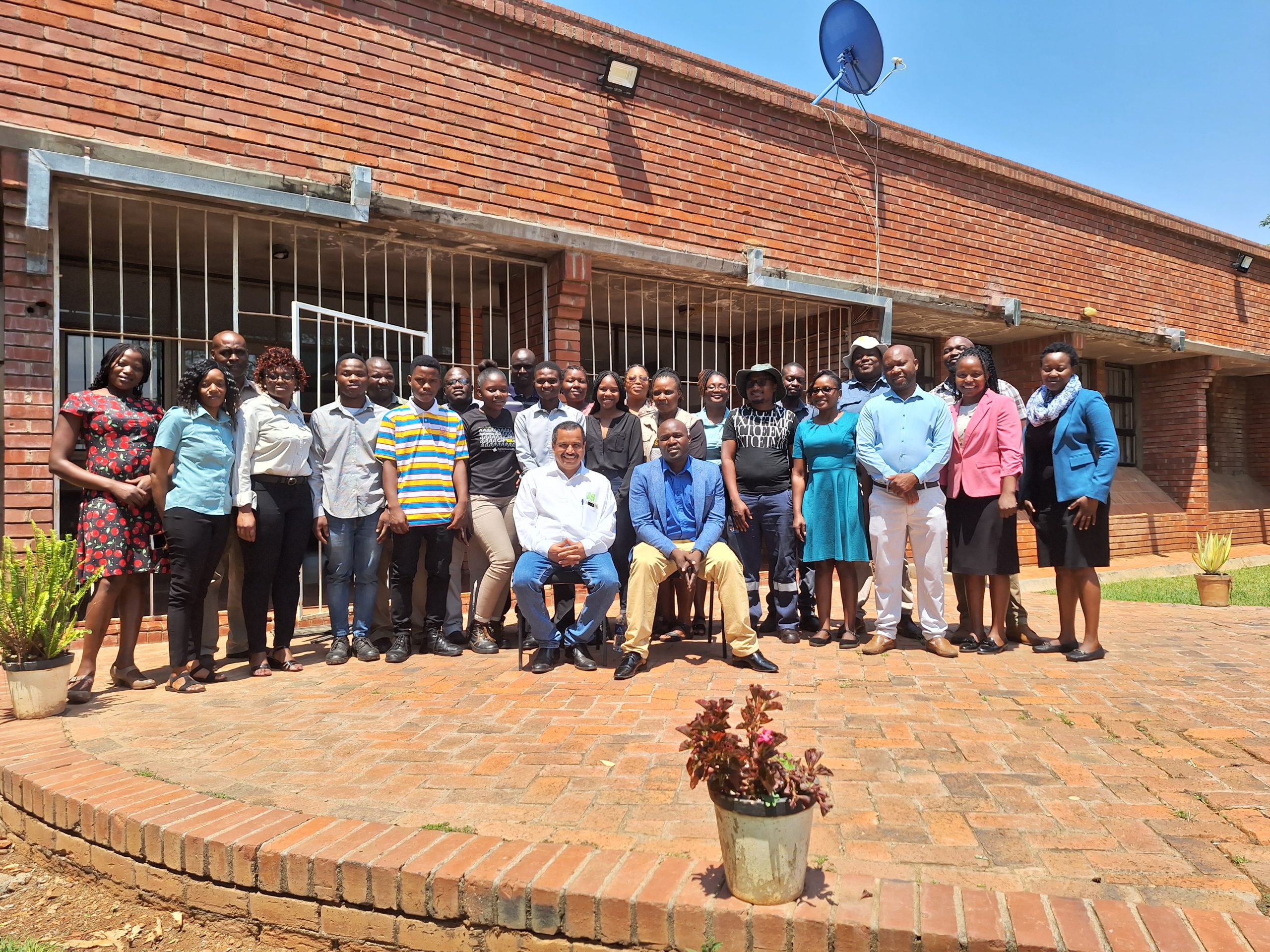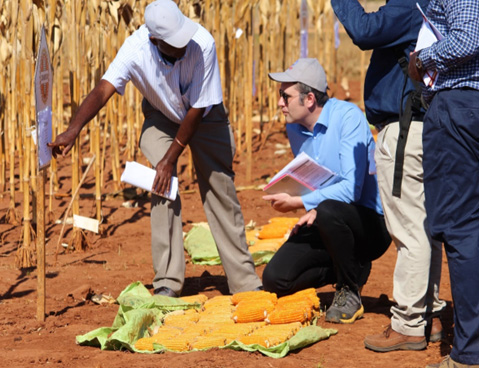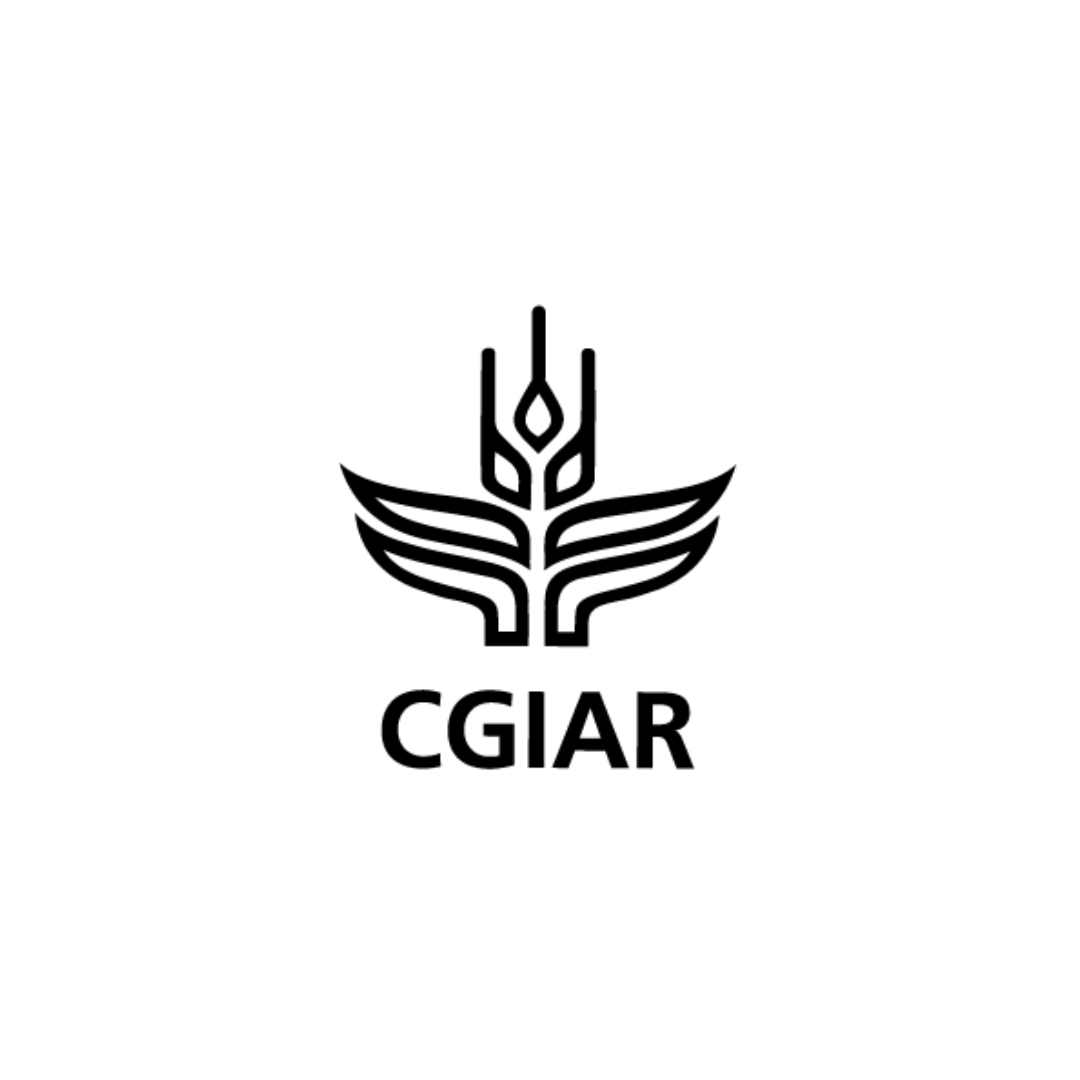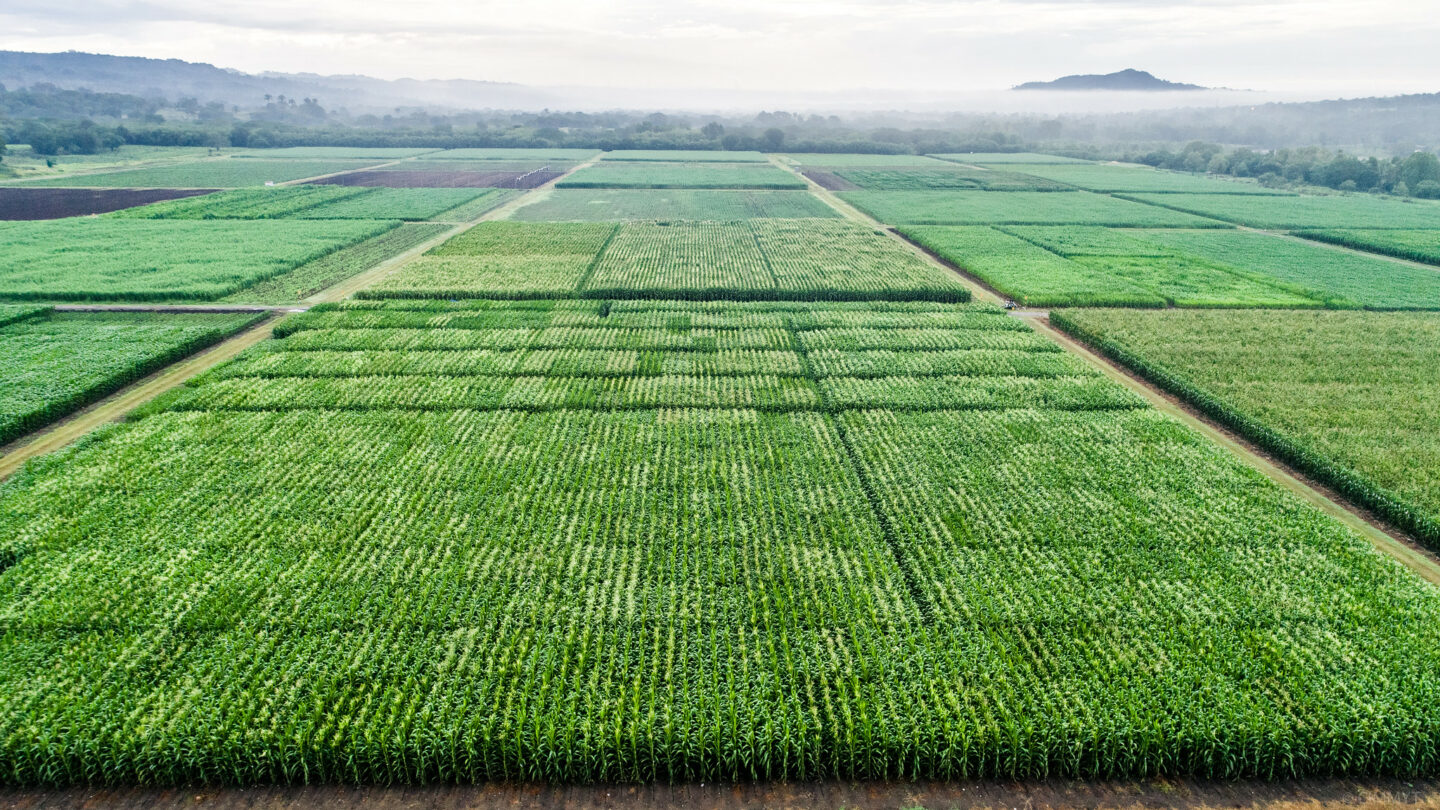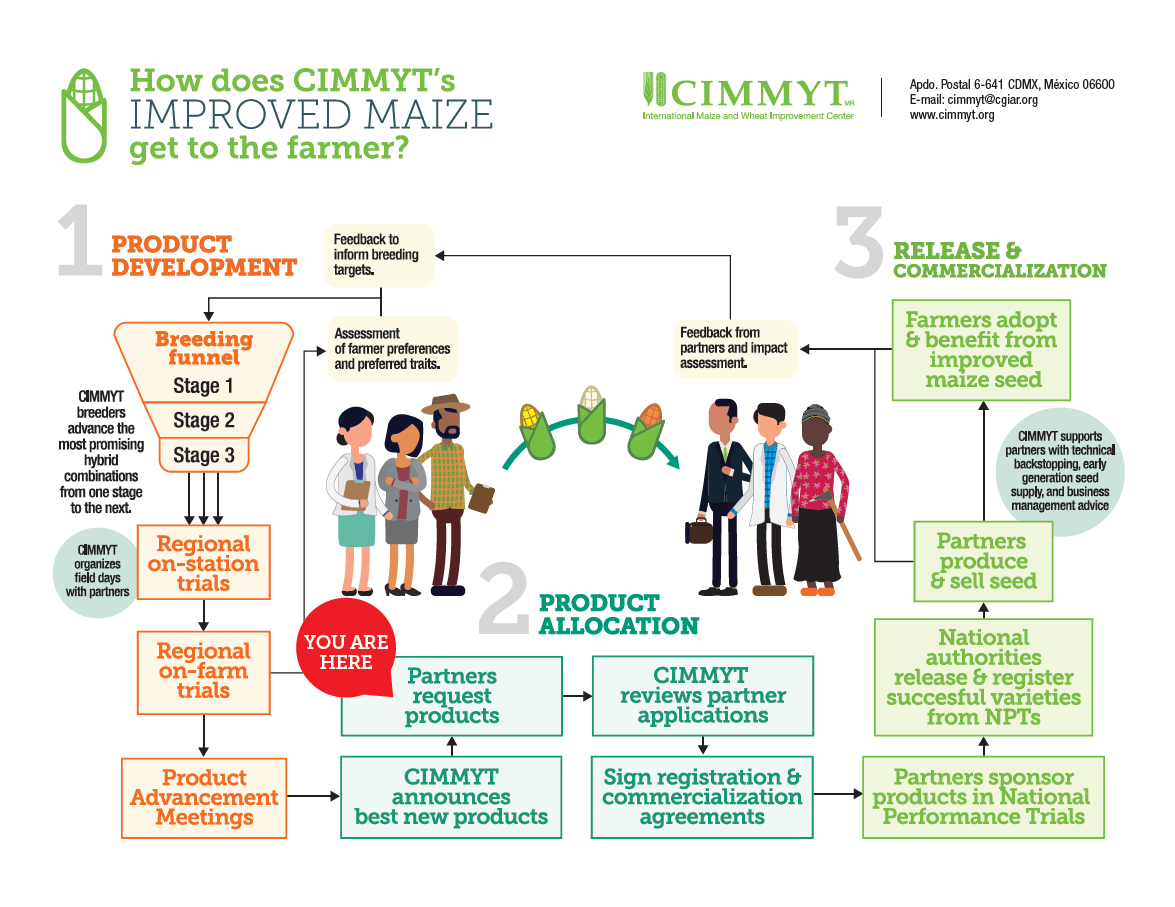Africa
CIMMYT’s work in Africa helps farmers access new maize and wheat systems-based technologies, information and markets, raising incomes and enhancing crop resilience to drought and climate change. CIMMYT sets priorities in consultation with ministries of agriculture, seed companies, farming communities and other stakeholders in the maize and wheat value chains. Our activities in Africa are wide ranging and include: breeding maize for drought tolerance and low-fertility soils, and for resistance to insect pests, foliar diseases and parasitic weeds; sustainably intensifying production in maize- and wheat-based systems; and investigating opportunities to reduce micronutrient and protein malnutrition among women and young children.
Afriseed: How improved legume seed can help transform Zambia’s agrifood systems
 Climate adaptation and mitigation
Climate adaptation and mitigation
Afriseed and AID-I are helping smallholder famers in Zambia transition to improved, high-yielding legumes.
Tela maize will boost food sufficiency, create wealth in Nigeria – Stakeholders
 Innovations
Innovations
Source: Daily Nigerian ()
CIMMYT’s involvement in the TELA Maize Project has been instrumental in the development of new drought-tolerant and pest-resistant maize varieties.
Every drop of water matters: Leading global research institutes ally to aid farmers in dry and saline ecosystems
 Capacity development
Capacity development
Two world-class research-for-development centers will work to raise food production and livelihoods in croplands where water is the defining constraint.
Transforming rural agriculture with improved seed and mechanization
 Capacity development
Capacity development
Attended by over 1,300 smallholder farmers, the fourth edition of the CIMMYT seed and mechanization fairs held in Mwenezi and Masvingo districts linked farmers with private sector companies.
Combatting maize lethal necrosis in Zimbabwe
 Capacity development
Capacity development
CIMMYT leads training sessions to equip stakeholders with tools to identify and mitigate the effects of MLN.
Strengthening seed systems with Zamseed
 Capacity development
Capacity development
To improve food security in Zambia and Tanzania, CIMMYT and Zamseed join forces to strengthen maize resilience.
What do we know about the future of agri-food systems in Central and West Asia and North Africa (CWANA)?
 Climate adaptation and mitigation
Climate adaptation and mitigation
Source: CGIAR ()
cCIMMYT’s research and development efforts are critical in addressing the environmental and socio-economic challenges of agriculture in CWANA.
Delivering the best seeds to farmers in Zambia
 Capacity development
Capacity development
A seed fair in Zambia brings together farmers to explore climate-smart seed systems.
How CGIAR maize breeding is improving the world’s major staple crop for tropical regions
 Climate adaptation and mitigation
Climate adaptation and mitigation
Maize breeding innovations by CIMMYT, the International Institute of Tropical Agriculture (IITA), and CGIAR’s Accelerated Breeding Initiative, will deliver climate-resilient and nutritionally enriched maize varieties for farmers and consumers.
The Landscape of Agricultural Biotechnology
 Climate adaptation and mitigation
Climate adaptation and mitigation
Source: Technology Works (18 Dec 2023)
Kevin Pixley explores the impact of genetic engineering on resilient crop varieties
CIMMYT at the Borlaug Dialogue
 Capacity development
Capacity development
The 2023 Borlaug Dialogue showcased CIMMYT’s collaborations in Mozambique and innovative initiatives to address agricultural challenges in Southern Africa.
Three new CIMMYT maize hybrids available from Southern Africa Breeding Program
 Environmental health and biodiversity
Environmental health and biodiversity
CIMMYT announces three new, improved tropical maize hybrids.

